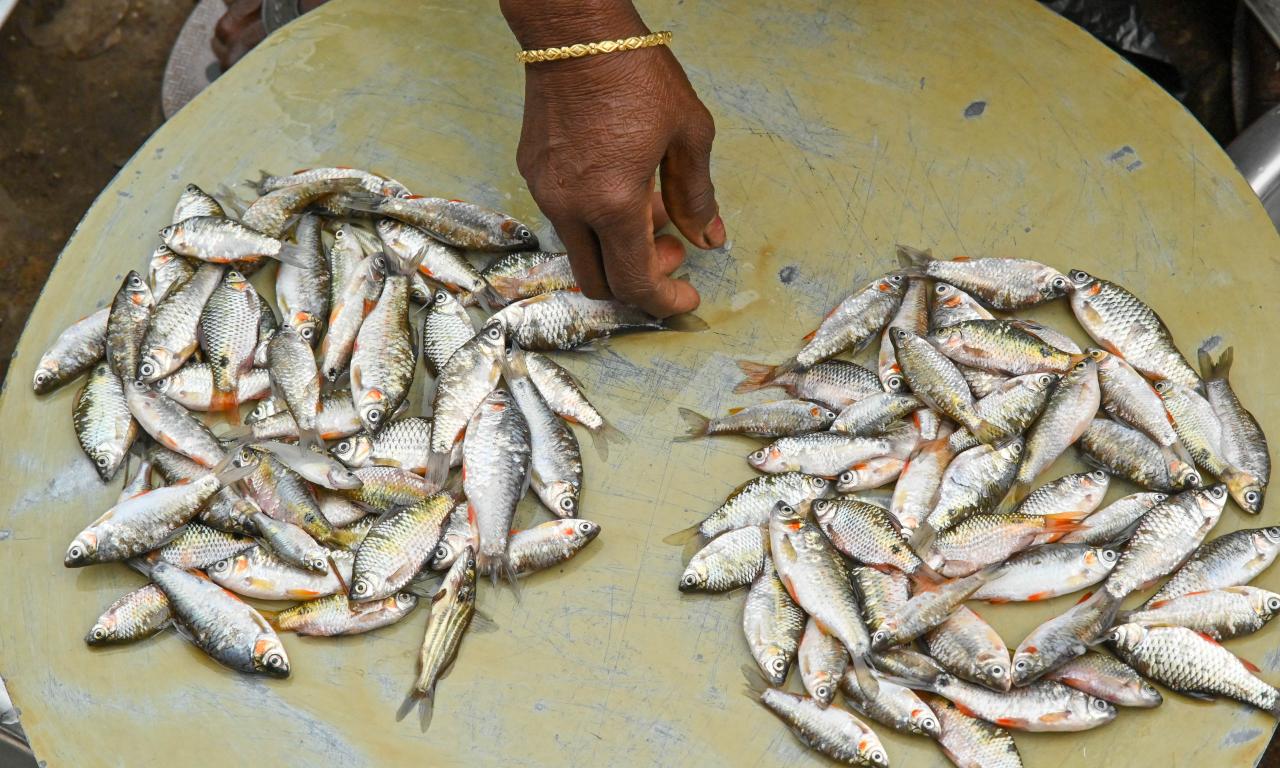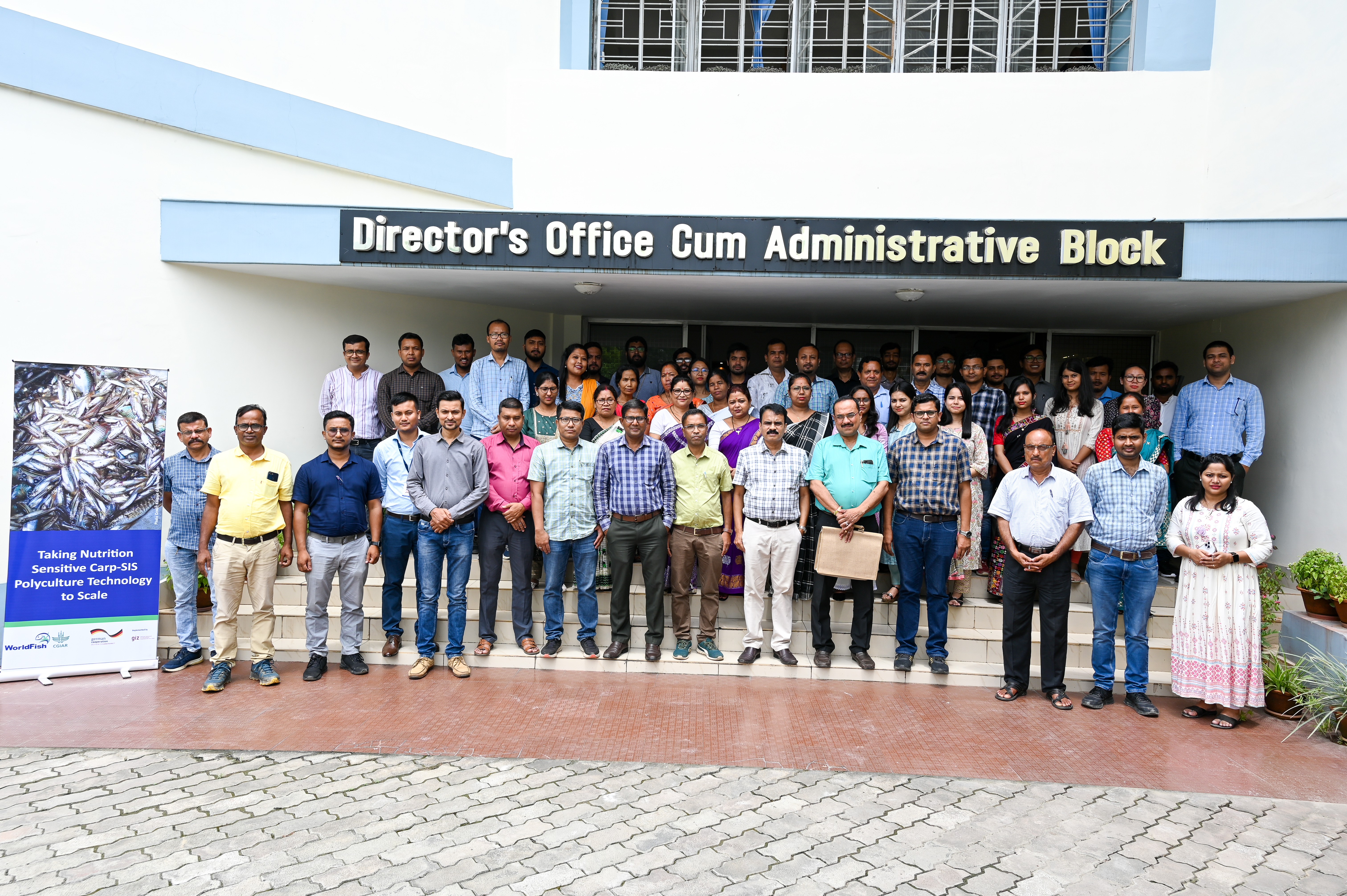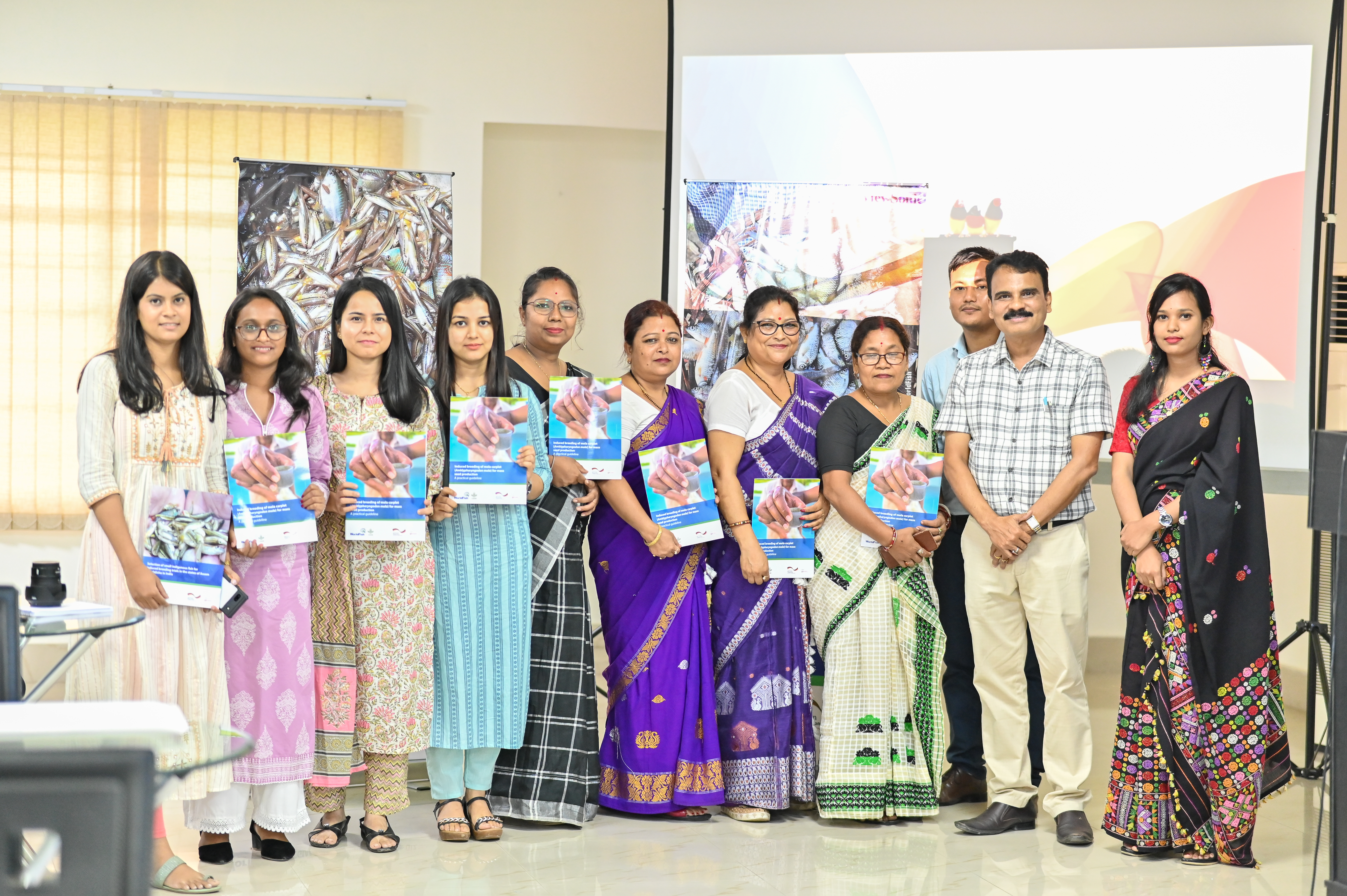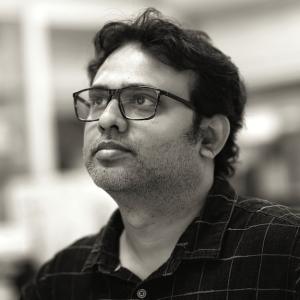
- WorldFish, through a Deutsche Gesellschaft für Internationale Zusammenarbeit (GIZ) funded project, has successfully developed a simple and replicable technique for mass-producing SIS seeds which have significant potential for advancing nutrition-sensitive aquaculture in South Asia.
- In collaboration with the Department of Fisheries, Government of Assam, WorldFish organized a "Capacity Building Workshop on Mass Seed Production of Small Indigenous Fish Species" targeting government officials and researchers.
- The workshop strengthened the partnership and cooperation with the Department of Fisheries, reinforcing the government's commitment to the Scaling-SIS project.
Small indigenous fish species, collectively referred to as SIS, are loaded with vital micronutrients. They play a crucial role in promoting nutrition-sensitive aquaculture in South Asia and have the potential to significantly reduce undernutrition through food-based strategies. However, the lack of standardized techniques for large-scale hatchery production of these micronutrient-dense SIS presents a major technical barrier to advancing nutrition-sensitive aquaculture approaches.
WorldFish, in collaboration with Deutsche Gesellschaft für Internationale Zusammenarbeit (GIZ), is implementing the Taking Nutrition-Sensitive Carp-SIS Polyculture Technology to Scale project. As part of this project, WorldFish has successfully devised scalable mass-production techniques for SIS seed in the Indian states of Odisha and Assam.
To build capacity and transfer the technology among government functionaries and researchers, WorldFish organized a ‘Capacity Building Workshop on Mass Seed Production of Small Indigenous Fish Species’ in collaboration with the Department of Fisheries, Assam. The workshop took place on July 6, 2023, at the campus of the Indian Institute of Banking Management (IIBM) in Guwahati.
The workshop witnessed the participation of 61 individuals from various institutions. This included 37 officials from the Department of Fisheries, professors and Ph.D. scholars from the College of Fisheries Raha and Guwahati University, ICAR-Central Inland Fisheries Research Institute, a representative from the National Fisheries Development Board, and Community Resource Persons (CRPs) from the GIZ-SAFAL project in Assam.
Partnership in hatchery-based mass production of mola seed

During the inaugural session, a practical handbook on the induced breeding of mola was released. This practical manual, a result of WorldFish's continued efforts in the development and scaling of nutrition-sensitive aquaculture, provides a unique, step-by-step guideline for any small-scale fish farmer or fish hatchery business interested in increasing their capacity for mass seed production.
In the technical session, Kalpajit Gogoi, the technical coordinator of the project, conducted a hands-on session on hormone administration for the small indigenous fish species, while Kausubh Bhagawati shared success stories on the induced breeding of Reba carp. The session encouraged open questions and suggestions from the audience and witnessed keen interest from the CRP women's groups in SIS breeding and culture.
As resource persons, Dhruba Jyoti Sharma and Sanjay Sarma explained the potential of WorldFish research in nutrition-sensitive aquaculture at the state level. They expressed their admiration and emphasized the importance of unlocking the technology for hatchery-based mass production of mola seed and how this advancement would expedite the government's progress in nutrition-sensitive carp-mola polyculture technology in villages across Assam and beyond.
WorldFish is glad the project workshop contributed to increased partnership and cooperation between all stakeholders involved. It was also rewarding to see young researchers interact freely with government officials and researchers while providing a promotional platform for partner hatcheries to market the availability of SIS seed to a broader audience.


